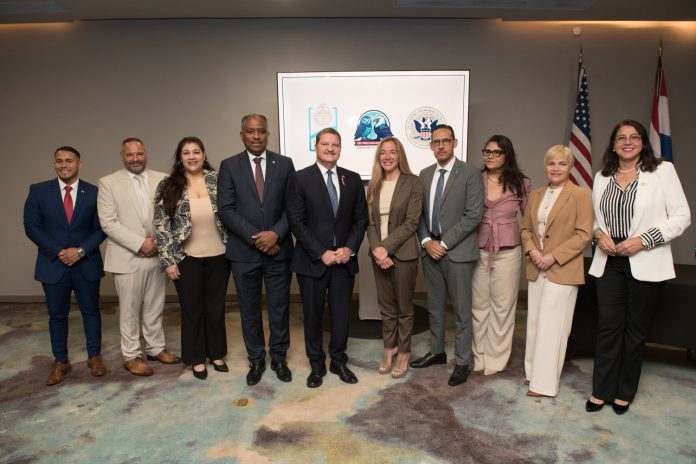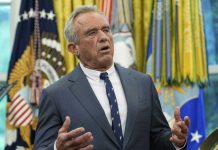ORANJESTAD – U.S. Customs and Border Protection (CBP) signed a new Preclearance agreement with Aruba, enhancing security which will in turn modernize travel between the two countries.
The signing took place Oct. 24 during a ceremony near the Queen Beatrix International Airport in Oranjestad. The new agreement was signed by CBP Office of Field Operations (OFO) Executive Assistant Commissioner Diane J. Sabatino and Prime Minister of Aruba Michiel ‘Mike’ Eman, and replaces the 1994 Preclearance agreement, which pre-dates the formation of the U.S. Department of Homeland Security (DHS) and CBP.
“The agreement is an achievement for both countries, further strengthening our relations, security, and ease of access for both nations,” said The Right Hon. Mike Eman, Prime Minister of Aruba. “At the heart of this cooperation lies the shared pursuit of happiness — the pursuit of the common good — which is the underlying force that brings our peoples together to create opportunities and forms of collaboration that transcend borders. It is this shared ideal that makes partnerships like today’s possible.”
“This agreement advances our mutual security cooperation and commemorates nearly 30 years of Preclearance operations in Aruba,” CBP’s Acting Executive Assistant Commissioner for Field Operations Diane J. Sabatino said during the ceremony. “Today signifies an important milestone in our close partnership as we establish a modernized framework for Preclearance border security operations, enhancing our comprehensive security partnership through increased travel and an improved passenger experience.”
Preclearance operations started in Aruba in 1996, making it one of 15 locations in six countries offering Preclearance, along with The Bahamas, Bermuda, Canada, Ireland, and the United Arab Emirates. The program enables CBP officers to perform the same immigration, customs, and agriculture enforcement typically done upon arrival in the United States before international travelers depart from certain foreign airports, identifying threats to the U.S. before arrival.
This reaffirmation between the countries builds upon a robust relationship, with opportunities for enhanced border security cooperation of mutual benefit to both nations.
















